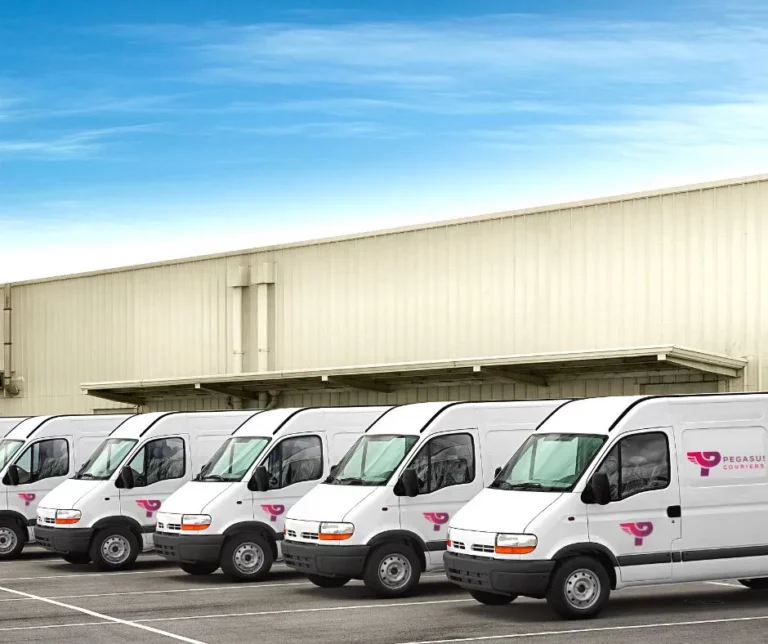
UK van shortages impacting courier industry growth
The nationwide van shortage is hampering the courier industry’s growth amid increasing vehicle rental costs.
Experts remain optimistic that delivery van shortages will “ease”; however commercial rental contracts continue to increase due to ongoing supply issues.
The Society of Motor Manufacturers and Traders (SMMT) said that while the UK’s new light commercial vehicle (LCV) registrations were down by -20.6% at the end of the year, there was expected growth projected in 2023.
This comes on the back of some commercial rental companies increasing lease prices by 30% to 40% per year last year.
The drop in manufactured vans is primarily due to the ongoing global shortage of semi-conductors but is also impacted by other factors such as the war in Ukraine, model changes and broader industry structural changes.
In a January statement, SMMT chief executive Mike Hawes said that the decrease in production was primarily due to global supply chain and economic issues. “As a result, the market was -22.9% down on pre-pandemic 2019, marking the fewest LCV registrations since 2013,” the statement read.
Hawes pinned the key issue of relentless supply chain disruptions and wider economic issues. “A return to growth is expected in 2023, but if this crucial sector is to deliver for the economy, society and the environment, action is needed from all stakeholders, particularly in the areas of charging infrastructure and fiscal frameworks, enabling more van buyers to make the switch.
“The LCV market is set to deliver an additional £1.6 billion for the British economy this year, and a further £2.4 billion in 2024 as the latest market outlook forecasts around 330,000 new van registrations in 2023.”
Pegasus Couriers MD Martin Smith said that while news of the production increase was welcome, the hike in van rental costs was stunting growth.
“Several courier and logistics companies have commercial lease and rental agreements with suppliers to ensure that vans are available to meet demand. Unfortunately, in 2022 we saw the demand and costs increase, resulting in rental companies dramatically hiking their prices. As a business, we were fortunate to have plans in place and meet targets. While we have our own fleet of vans, we also rely on leasing and rental providers – particularly during the busy peak season when we need additional delivery vans,” he said.
“We have had to revise expansion plans and postpone our fleet upgrade. This shortage has had a major impact on several sectors in the transport industry, and we hope that this will significantly ease going forward.”

Pegasus Couriers contracts and owns about 600 vans while delivering parcels across Scotland, Ireland and the North of England. Some clients include global corporates such as UPS and Yodel.
Operations manager Phil West said continued van rental price hikes would severely impact the industry.
“The courier sector is volatile and responsible for pumping millions of pounds into the economy. Last year, the van rental price increase resulted in several businesses revising their operational and growth plans. We constantly negotiate with all our suppliers to ensure our fleet costs are as affordable as possible.
“Nevertheless, we have had to absorb a large part of the cost increase. This includes consulting with various providers for better rates, such as fuel suppliers, courier van insurance suppliers and repair workshops. Our methods allow us to ensure we have the most competitive and affordable fleet costs,” he added.
Last year the British Vehicle Leasing and Rental Association (BVRLA) said the lack of production was restricting industry business growth.
According to the Industry Outlook Report, BVRLA Chief Executive, Gerry Keaney, said that many of its members had to re-align their goals to cater for the challenges into 2023.
“The findings show that BVRLA members are adjusting to new market realities, focussing on their growth opportunities and addressing their compliance priorities while making major leaps forward in the use of technology.”

Pegasus Couriers steps up a gear to reach snow-trapped areas
With only a week before Christmas, UK delivery company Pegasus Couriers now has a four-wheel drive truck to reach remote snow-trapped areas.

Video: Pegasus Couriers driver helps stranded woman during floods
A good samaritan courier driver helped ‘rescue’ a woman whose car broke down on a flooded road near Laurencekirk in Scotland.

A package and its journey across two countries in a day
A “priority” Christmas present travelled more than 500 miles by road in one day before arriving on the Isle of Skye at 11pm.

Armed Forces Covenant
UK courier company, Pegasus Couriers, has signed the Armed Forces Covenant as part of a forces-friendly workplace initiative.